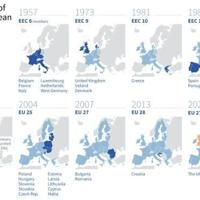Significant gains by far-right parties in the EU elections caused a major upheaval in French politics on Sunday. Despite this, mainstream parties are expected to maintain a majority in the European Parliament.
Following the exit polls that showed far-right leader Marine Le Pen’s National Rally (RN) outperforming liberal party Renaissance in the EU elections, French President Emmanuel Macron dissolved France’s national parliament and called for snap elections. The RN is projected to secure around 33 percent of the votes and 31 seats in the incoming EU parliament, more than double the score of Macron’s Renaissance party at 15 percent.
Meanwhile, German Chancellor Olaf Scholz faced disappointing results as the far-right Alternative for Germany claimed the second spot with 16 percent, ahead of Scholz’s Social Democrats at 14 percent.
Despite these setbacks for Europe’s centrist leaders, the far-right seemed set to increase its presence in the European Parliament. However, the far-right parties fell short of expectations in the Netherlands and Belgium, with the overall scenario still emerging in other countries.
Notably, the extreme right-wing parties remain divided, which could keep them on the sidelines in Brussels. A preliminary projection indicated that the three main centrist parties are likely to maintain a clear majority in the European Parliament, with a slightly reduced number of seats out of the total 720.
The European People’s Party (EPP) secured the most seats with 186, followed by the center-left Socialists and Democrats with 133 seats, and the centrist Renew Europe with 82 seats.
European Commission chief Ursula von der Leyen, who is aiming for another term, expressed optimism about the results, stating “Today is a good day my friends. We are the strongest party. We are the anchor of stability.”
Despite the significant victory for Le Pen in France, the elections also highlighted losses for Green parties across Europe, as anti-EU sentiments, particularly on environmental policies, gained traction.
The elections saw participation from over 360 million voters across the EU, amidst challenges such as Russia’s war in Ukraine, global trade tensions, climate change, and the possibility of a new presidency under Donald Trump.
Now that the voting phase is over, negotiations will begin among EU leaders and lawmakers to determine the leadership of the European Commission for the next five years. Ursula von der Leyen remains a frontrunner, awaiting confirmation from the 27 leaders and support from centrist groups in the parliament.
As the horsetrading phase begins, the results from Italy are awaited, where Prime Minister Giorgia Meloni’s Brothers of Italy party is expected to lead. Meloni’s support is being sought by von der Leyen, Marine Le Pen, and Hungarian Prime Minister Viktor Orban.
The elections reflected a shift towards anti-immigration sentiments, with many Europeans turning to far-right parties due to economic challenges. High turnout was observed in countries like Germany, Austria, and the Netherlands, with surprising outcomes for far-right parties in Austria and the Netherlands.
Concerns over the war in Ukraine and its potential expansion were raised in Hungary by Prime Minister Viktor Orban, who framed the election as a “pro-peace or pro-war” choice. The specter of Russia’s threat was also a significant issue in eastern EU countries.
In Poland, the pro-European coalition led by Donald Tusk appeared to have successfully fended off a comeback attempt from the nationalist Law and Justice party, according to projections. Tusk’s alliance was projected to secure 38 percent of the votes, ahead of Law and Justice at 33 percent.
burs-del/ec/db





